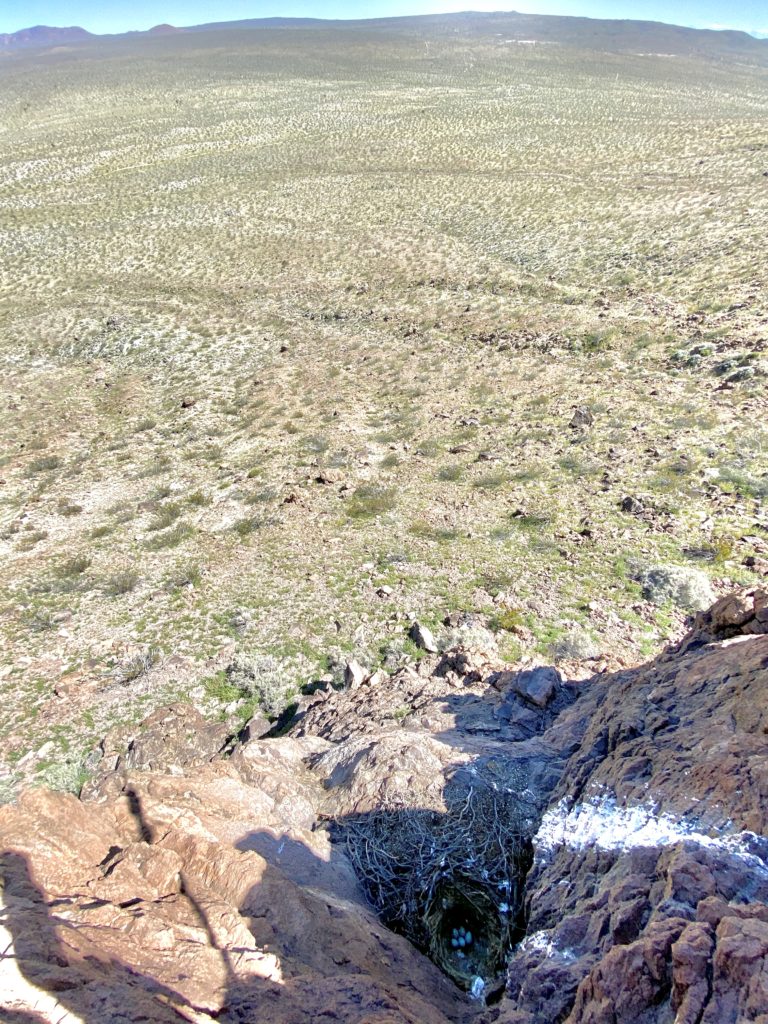Wilder biologists performed as FAA licensed drone pilots and were sub-contracted in collaboration with Sundance Biological Consulting and Hardshell Labs to effect Common Raven population control through egg-oiling mitigation techniques


National Fish and Wildlife Foundation has funded ongoing common raven and raptor surveys throughout desert tortoise Habitat Conservation Units in the western Mojave Desert. The surveys consist of point counts, as well as targeted transects along roads, transmission lines, and natural cliff nesting substrate.
The goal of the surveys has been to better understand the dramatic expansion of range and growth in numbers of the common raven, with the goal of applying mitigation techniques to slow or reverse growth trends that are problematic for other native desert wildlife species.
Common ravens in the Mojave desert region have become so numerous due to human subsidies (water, food, nesting substrate), that they have become a nuisance and detriment to agricultural operations, and now impose invasive predatory pressure on wild desert ecosystems.
In the years 2020 and 2021, Wilder ecological biologists effected Common Raven population control measures through the use of egg-oiling techniques developed by Hardshell Labs. A non-toxic, vegetable-based oil was delivered using an extendable pole and camera apparatus to unhatched eggs in raven nests located in desert tortoise habitat. Nests were monitored following the treatments to ascertain effectiveness.
Nesting status was at times ascertained by Wilder biologists through the use of aerial drone camera footage.
